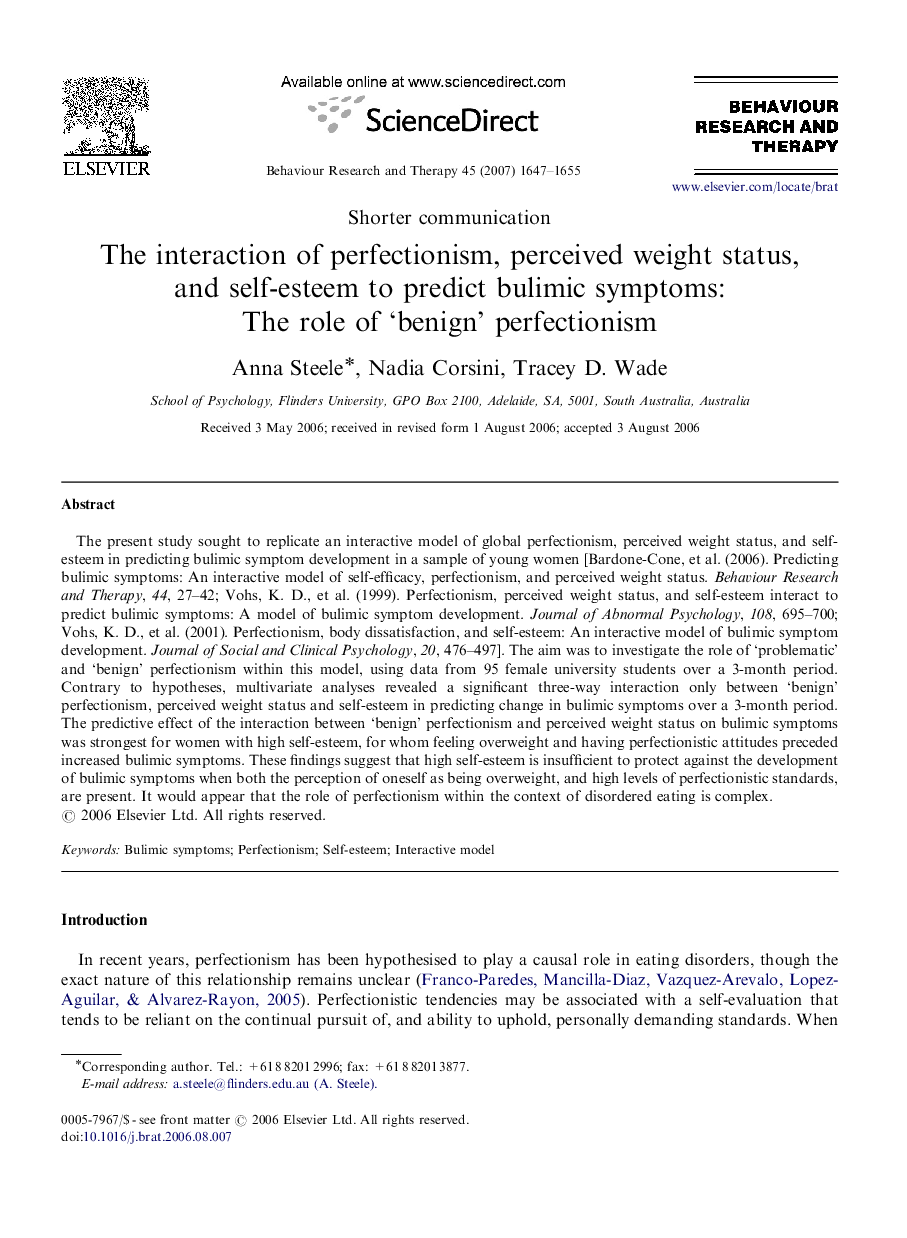| Article ID | Journal | Published Year | Pages | File Type |
|---|---|---|---|---|
| 902601 | Behaviour Research and Therapy | 2007 | 9 Pages |
The present study sought to replicate an interactive model of global perfectionism, perceived weight status, and self-esteem in predicting bulimic symptom development in a sample of young women [Bardone-Cone, et al. (2006). Predicting bulimic symptoms: An interactive model of self-efficacy, perfectionism, and perceived weight status. Behaviour Research and Therapy, 44, 27–42; Vohs, K. D., et al. (1999). Perfectionism, perceived weight status, and self-esteem interact to predict bulimic symptoms: A model of bulimic symptom development. Journal of Abnormal Psychology, 108, 695–700; Vohs, K. D., et al. (2001). Perfectionism, body dissatisfaction, and self-esteem: An interactive model of bulimic symptom development. Journal of Social and Clinical Psychology, 20, 476–497]. The aim was to investigate the role of ‘problematic’ and ‘benign’ perfectionism within this model, using data from 95 female university students over a 3-month period. Contrary to hypotheses, multivariate analyses revealed a significant three-way interaction only between ‘benign’ perfectionism, perceived weight status and self-esteem in predicting change in bulimic symptoms over a 3-month period. The predictive effect of the interaction between ‘benign’ perfectionism and perceived weight status on bulimic symptoms was strongest for women with high self-esteem, for whom feeling overweight and having perfectionistic attitudes preceded increased bulimic symptoms. These findings suggest that high self-esteem is insufficient to protect against the development of bulimic symptoms when both the perception of oneself as being overweight, and high levels of perfectionistic standards, are present. It would appear that the role of perfectionism within the context of disordered eating is complex.
